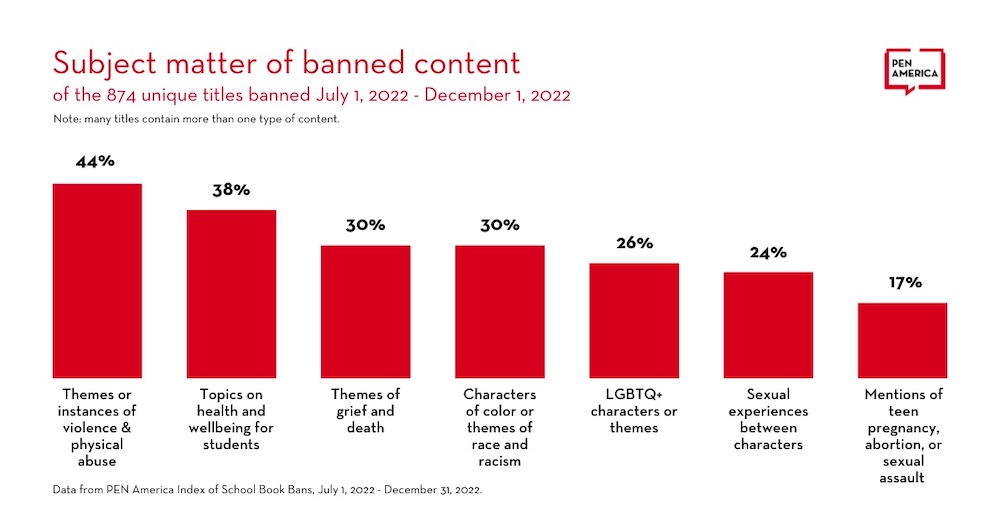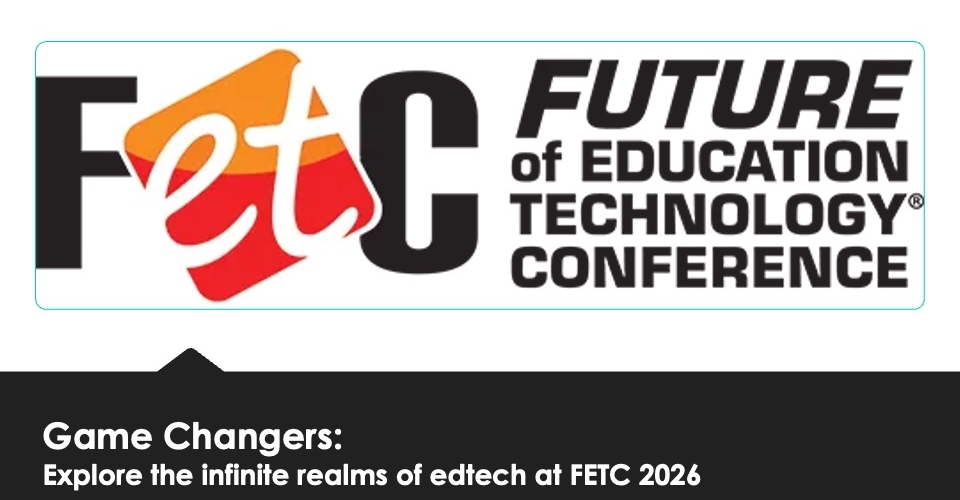More school book bans occurred during the first half of 2022-23 than in the previous two semesters, an escalation anti-censorship groups are now dubbing the “Ed Scare.” That increase is being driven by new laws passed in several states that restrict what can be taught in public schools, says PEN America, a civil rights nonprofit that has been tracking the recent waves of book bans.
Even though an American Library Association poll found 70% of parents oppose bans, “a vocal minority” continues to target books about race and racism, gender and LGBTQ+ identities, and various periods of U.S. history. But the censorship targets appear to be expanding: Earlier this year, the movement forced the removal of books about baseball legends and civil rights heroes Hank Aaron, Roberto Clemente and Jackie Robinson from Duval County Public Schools in Florida.
During the 2021-22 school year, most book-banning campaigns were parent-led but this year, these efforts have been “supercharged” by new state censorship laws that have stoked confusion in school classrooms and libraries, PEN America says.
School administrations are feeling pressured to “err on the side of caution” and remove books when parents complain. “Many public school districts find themselves in a bind,” PEN America contends. “They face threats and political pressure, along with parental fears and anxieties surrounding the books on their school shelves.”
An escalating ‘Ed Scare’
There were 1,477 individual book bans from July to December 2022, which equates to over 100 titles removed from student access each month, PEN America says. In comparison, the organization tracked 1,149 bans from January to June 2022 and 1,383 from July to December 2021.
Books with LGBTQ+ themes and characters and characters of color have faced the most challenges, but more topics have been targeted this fall. Schools have also removed a number of books about violence and abuse, health and wellbeing, or that include instances or themes of grief and death.

Here are some of the key findings from PEN America’s most recent book ban analysis:
- 30% of the unique titles banned this fall are books about race, racism, or feature characters of color. Meanwhile, 26% of unique titles banned have LGBTQ+ characters or themes.
- This school year, instances of book bans are most prevalent in Texas, Florida, Missouri, Utah and South Carolina.
- Bans this school year are increasingly affecting a wider swath of titles, including those that portray violence and abuse (44%), discuss topics of health and wellbeing (38%), and cover death and grief (30%).
- Books are more frequently labeled “pornographic” or “indecent” by activists and politicians to justify removing books that do not fit well-established legal and colloquial definitions of “pornography.”
- This school year, numerous states enacted “wholesale bans” in which entire classrooms and school libraries have been suspended, closed, or emptied of books, either permanently or temporarily. These “wholesale bans,” have involved the culling of books that were previously available to students, in ways that are impossible to track or quantify.
“These efforts to chill speech are part of the ongoing nationwide ‘Ed Scare’—a campaign to foment anxiety and anger with the goal of suppressing free expression in public education,” PEN American concludes. “As book bans escalate, coupled with the proliferation of legislative efforts to restrict teaching about topics such as race, gender, American history, and LGBTQ+ identities, the freedom to read, learn, and think continues to be undermined for students.”
More from DA: LGTBQ instruction has now been silenced throughout K12 in Florida



